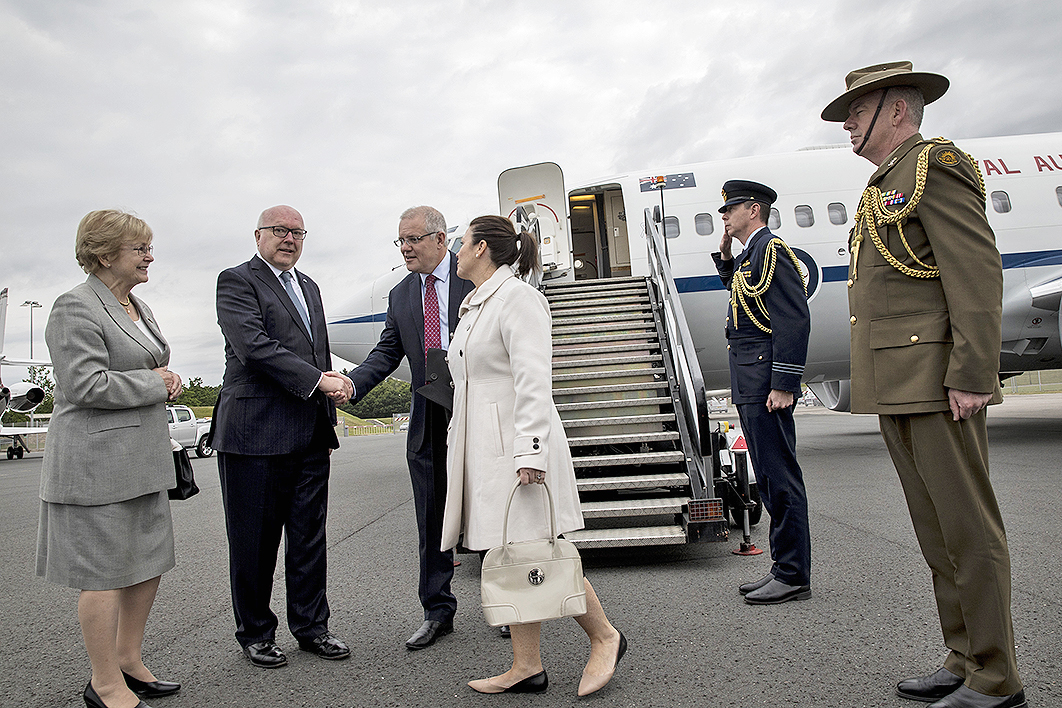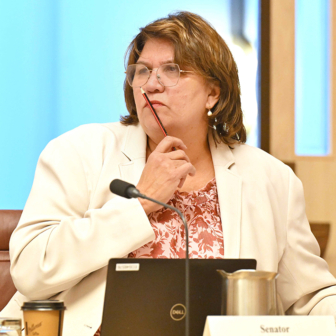The Liberal Party’s commitment to individual freedom took another battering with last week’s raids on the ABC and the home of News Corp journalist Annika Smethurst. Tensions between the party’s liberal and conservative elements over issues like climate change have been obvious for some time, but the legislative backdrop to the raids highlights the erosion of individual freedoms, once the cornerstone of Liberal ideology.
“Without free minds and free spirits, our boasted civic freedom becomes an empty shell,” the party’s founder, Robert Menzies, observed in the mid 1930s. The Liberal Party was still a decade away, but the primacy of the individual and the family, and constraints on the intrusive powers of the state, were a key element of the philosophy he attempted to build into the party.
Not that Menzies was consistent on this point. In one of its first major acts after winning government in 1949, his Liberal–Country Party government announced a ban on the Communist Party and its affiliated organisations and restrictions on the liberties of people declared by the government to be dangerous, or potentially dangerous, communists. As law professor George Winterton later wrote, the new law “potentially restricted the civil liberties of everyone.” It was eventually ruled unconstitutional by the High Court and a referendum seeking to alter the Constitution failed.
While the law is still seen in some quarters as a pragmatic response to the emerging cold war and the fear of communist subversion, a look at history suggests that those espousing liberal principles had long advocated repression to counter the perceived communist threat.
In 1934, for example, attorney-general John Latham sought unsuccessfully to impose bans on the party. Latham was a member of the government of Joseph Lyons’s United Australia Party, a forerunner of today’s Liberal Party. Earlier, in the 1920s, the conservative Nationalist government of Stanley Bruce sought to deport two foreign-born communists, leaders of the seamen’s strike, only to be blocked by the High Court.
The Liberal Party’s freedom-of-the-press credentials are similarly blemished. In the mid 1940s Labor, which had long chafed under hostile newspaper coverage, championed the idea of an independent news service for the ABC, modelled on Britain’s BBC. It was opposed by the Liberal-led opposition. With the advent of television in the 1950s, any hopes of greater media diversity were dashed when the Menzies government awarded the lucrative broadcasting licences to a claque of friendly newspaper proprietors.
After a generation of Coalition rule, the election of a Labor government under Gough Whitlam in 1972 disturbed this cosy world. When former newspaper allies now sometimes took Labor’s side, sections of the Liberal Party reacted with fury, seeing it as akin to apostasy. A federal president of the party, businessman Robert Southey, had his political ambitions dashed with the publication of memos written to prime minister William McMahon calling for certain newspaper editors to be “straightened out.” Similar views expressed last year by the then ABC chair, Justin Milne, were equally damaging.
The shift away from espousing individual freedom has not gone unnoticed within the party itself. In 2009, opposition frontbencher and future attorney-general George Brandis delivered a withering attack on the former government of John Howard, accusing Howard of too often losing sight of a core value of Menzian liberalism: the need to defend, rather than merely weigh in the balance, the rights of the individual.
In his contribution to Liberals and Power: The Road Ahead, a book about the party’s prospects, Brandis argued that Howard was at his “most disappointing” when he allowed his social conservatism to get in the way of the party’s traditional commitment to individual freedom. “A great government though it was,” he wrote, “the Howard government would have been a greater government still if it had been more consistently true to the Liberal Party’s liberal values.”
Howard showed “a conscious preference for social order above personal freedom, for the attitudes of ‘the mainstream’ above the concerns of the marginalised,” Brandis wrote. “Given that the philosophy of the Liberal Party — in particular as articulated by Menzies in the 1940s — is ultimately built upon a belief in the primacy of the rights of the individual, this was a profound shift in emphasis. The principal descriptor of the relationship between the individual and the community became ‘responsibilities,’ not ‘rights.’”
On his resignation from the ministry early last year, Brandis returned to the theme, warning of the challenge that right-wing populism posed to the Liberal Party. He told the Senate that classical liberal values were under “greater challenge than at any time in my memory.” Powerful elements on the right, he said, have “abandoned both liberalism’s concern for the rights of the individual and conservatism’s respect for institutions, in favour of a belligerent, intolerant populism which shows no respect for either the rights of individual citizens or the traditional institutions which protect them.”
Being a liberal in the classic liberal sense, Brandis said, means “respecting the right of people to make choices which we ourselves would not make and of which we may disapprove. It means respecting the right of people to express their opinions, even though others may find those opinions offensive. It means respecting the right of people to practise their religion, even though others may find the tenets of that religion irrational. It means, in a nation of many cultures, respecting the right of people to live according to their culture, even though, to others, that culture may seem alien. It means respecting the right of everyone to marry the person they love, even though others may find their understanding of marriage confronting.”
Those words, spoken so recently, already seem just another distant echo of the founding aims of the Liberal Party. •




